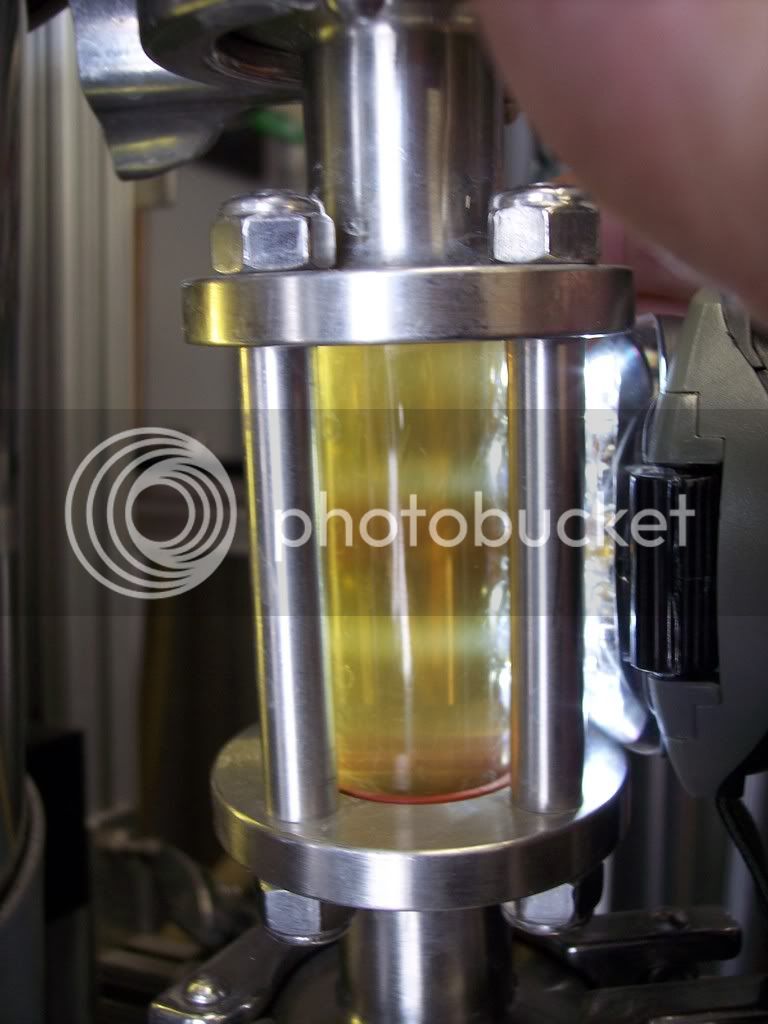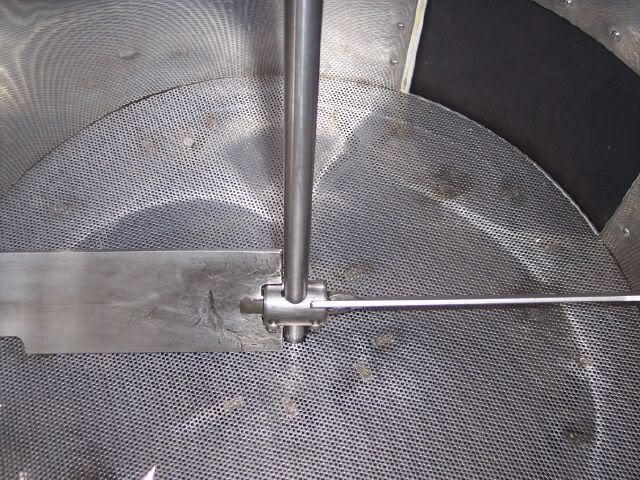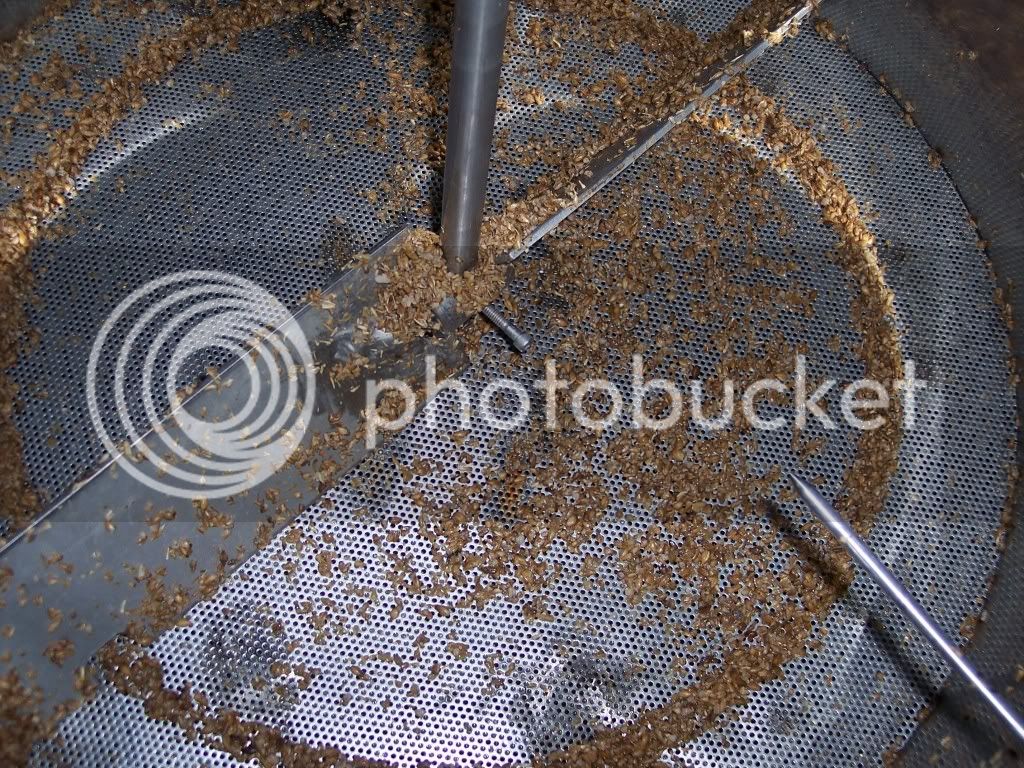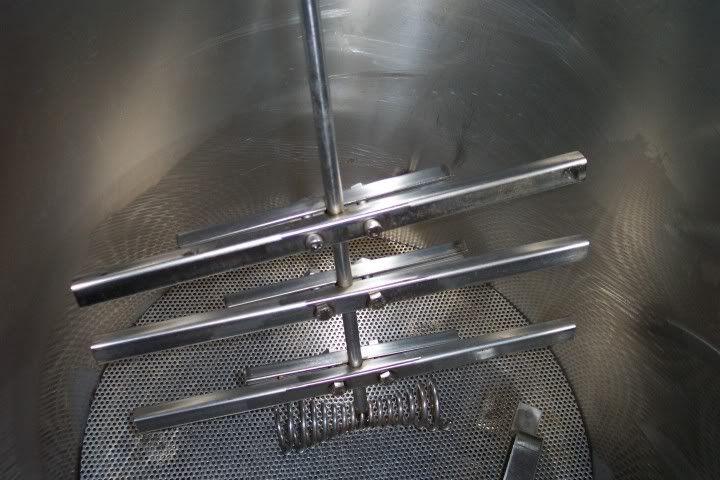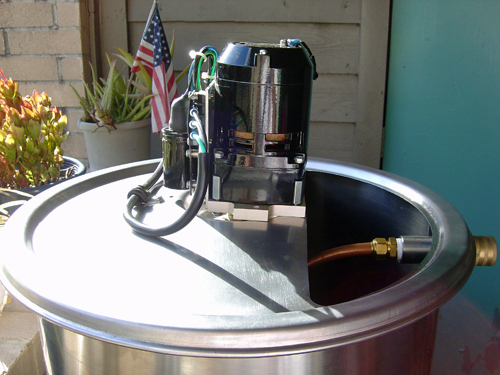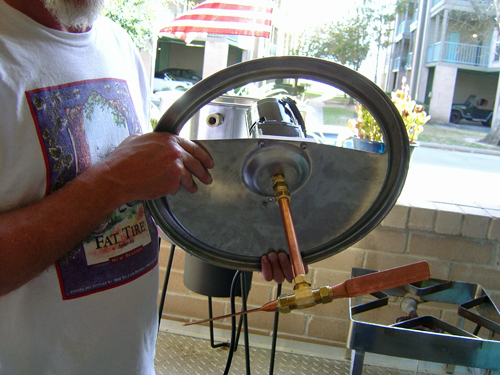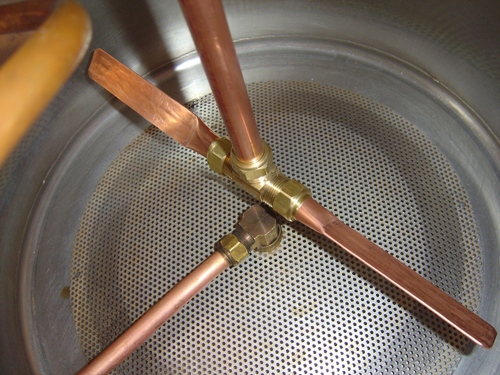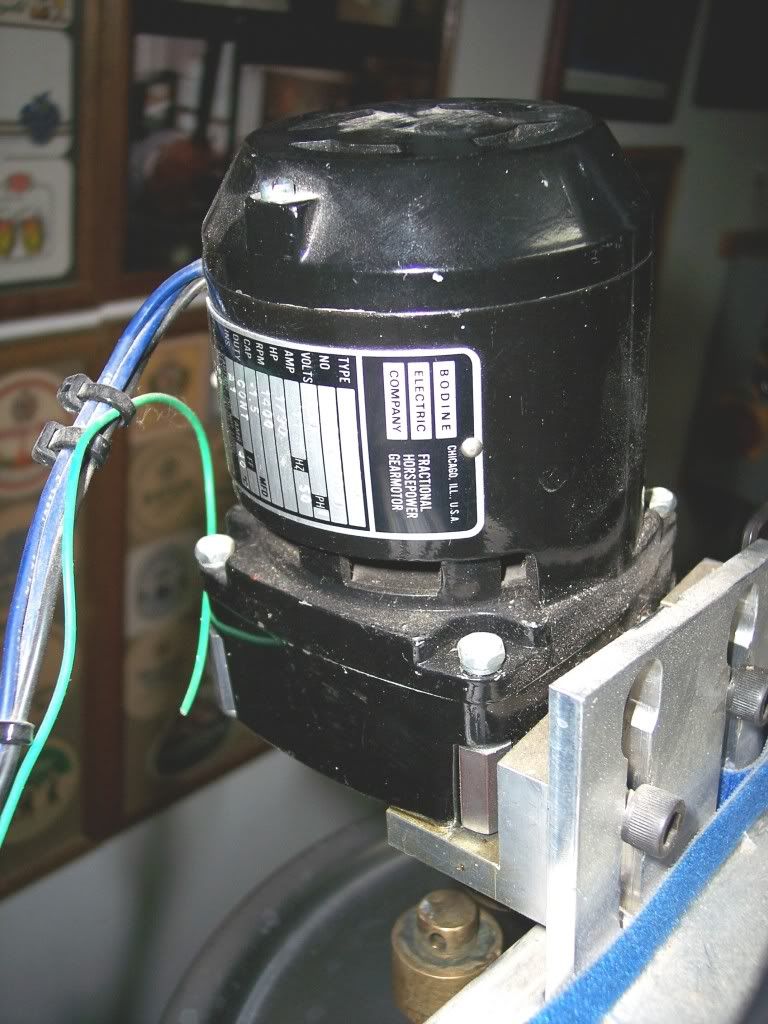They do not use a HERMS brewing system
My set up is not a HERMS or a RIMS system and requires a mash mixer.
I installed mash mixers in both of my mash tuns for the following reasons:
1. Direct fired
2. Step mashing
3. No brewer required to stir during mashing, process automated
The mash tuns are combination Mash/Lauter and require a mash-out rest with the mixer off for the grain bed to settle.
After the rest a normal vorlauf clears the wort.
200 liter two position mash tun mixer.
One position is for mashing and the second is for clean-out (grain dump).
During grain dumping
50 liter mash tun mixer
Cheers,
ClaudiusB


